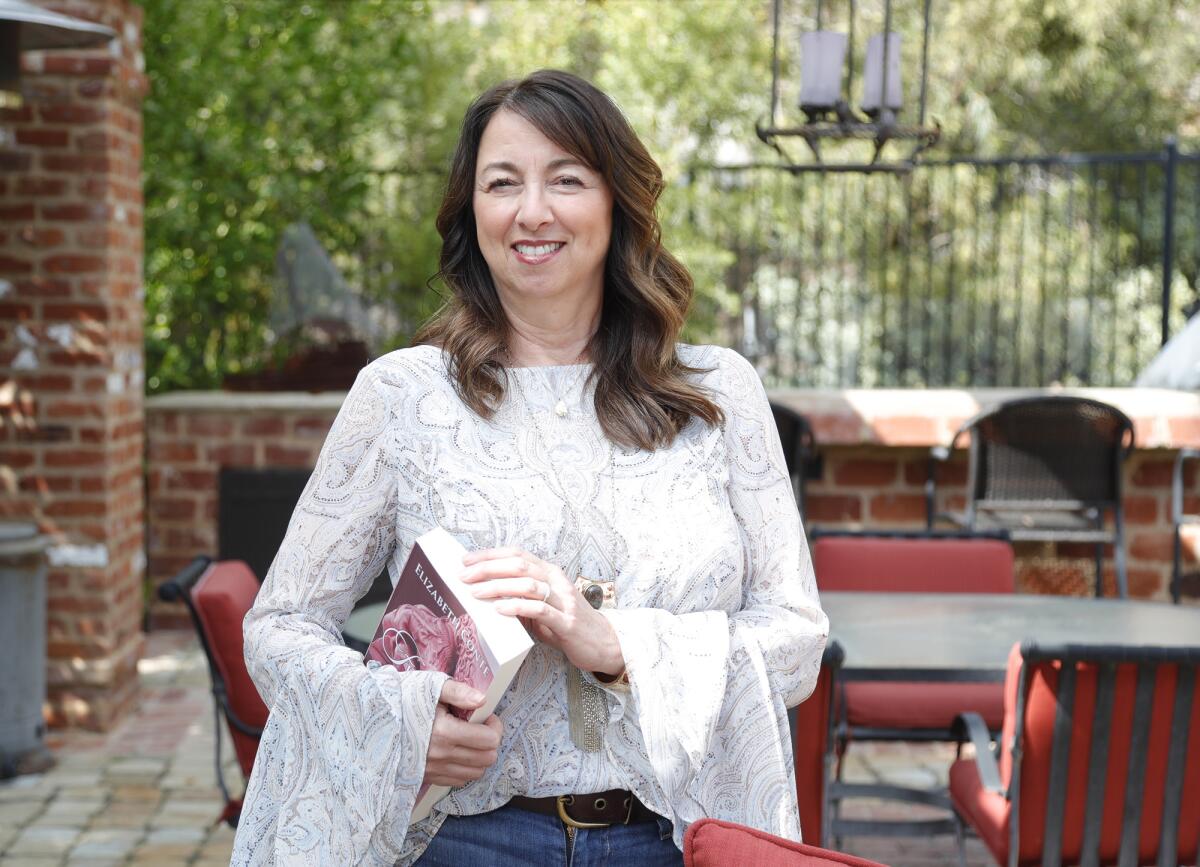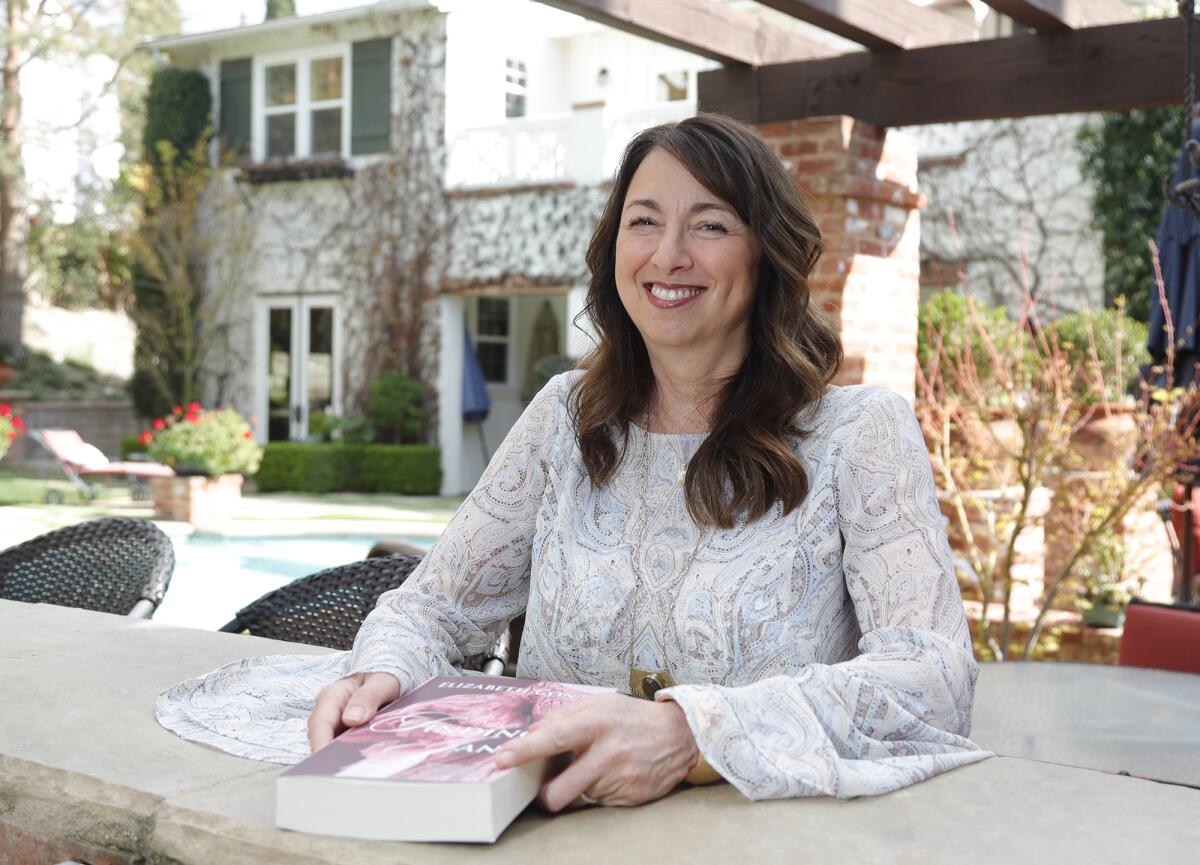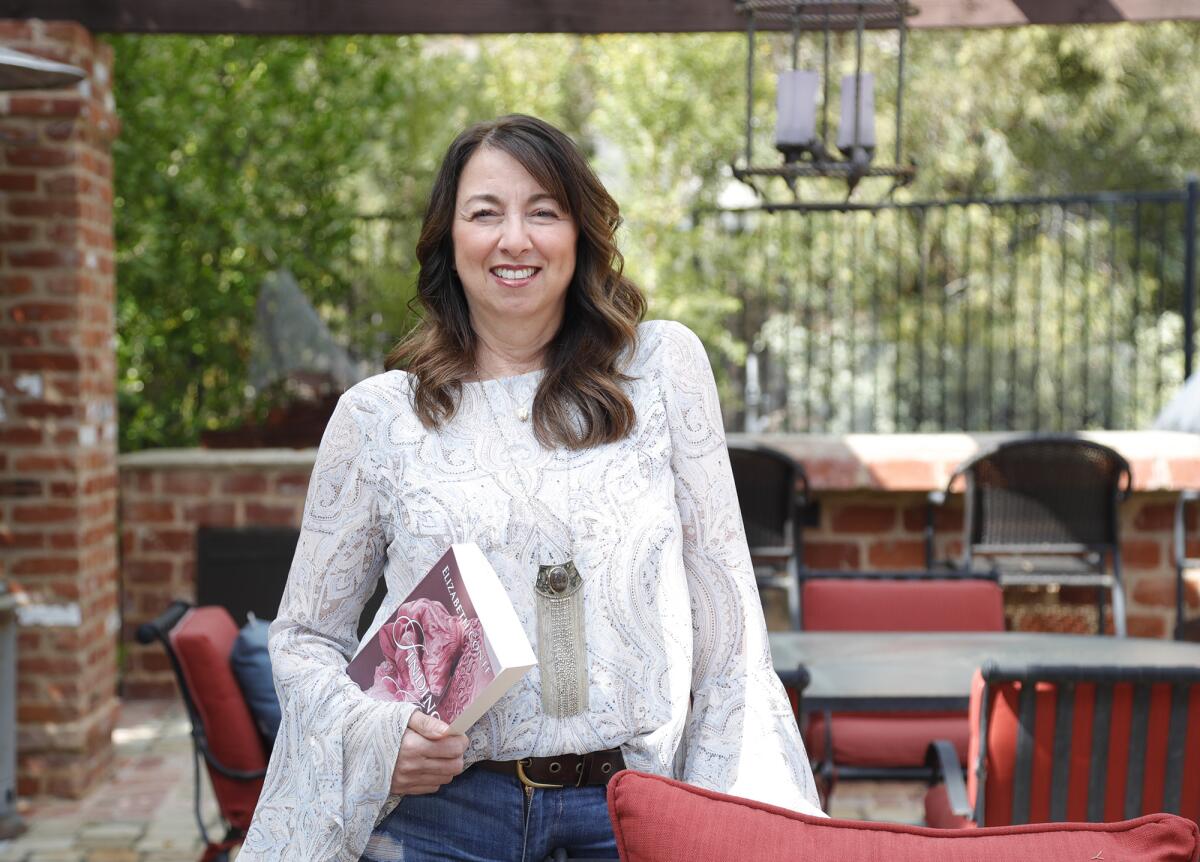O.C. author searches for other authors to invent new literary genre for her new bookhouse

- Share via
Elizabeth Conte loves 19th century literature.
There’s just something about it, Conte said in a recent interview. Works of that time had a certain drama, romance and a literary flair that she’s not seen replicated in most modern fiction. She said she loved what that period of literature gives, but also realized that the average reader probably doesn’t chase after authors like Jane Austen and Elizabeth Gaskell.
Period dramas do get their time in the spotlight on television, Conte acknowledged, through shows like Netflix’s “Bridgerton” and PBS’s “Downton Abbey.”
“There’s all these historical, Old World stories and [people] are just eating it up, but we’re not getting the same thing in books,” said Conte. “We’re not seeing the same character development, the long-term romances. It’s very ‘wham, bam; thank you ma’am’ romances, not like ‘Pride and Prejudice’ and ‘North and South’ … all these stories they keep redoing [in film].”
That’s where Conte, an new-fledged author from the business and marketing world, said she saw an opportunity.
“The publishing houses own the market, but the industry is changing. There’s so many self-published authors out there. The publishing world isn’t satisfying the market and I think that’s what’s really cool about the indie market. There are a lot of niches and open territories for people who want things like that,” said Conte.

“I’m an intelligent woman. I read a lot. I just couldn’t find what I wanted. I don’t think what I’m asking is stupid or I’m out there. There’s other people who’ve gotta be like me,” she said.
That was the impetus for her to not only write her own book — “Finding Jane,” released in March — but also to take the beginning steps to establishing her own publishing house, Jane Writes Press, which she said is in-between traditional and independent.
She said she isn’t a fan of the pacing in the modern romance novel, adding that many books don’t make her feel a sense of escapism.
“A woman like me isn’t going to read a romance novel. They meet; they fall in love; something happens; they find their way back to each other,” said Conte. “I like long, developed stories and things that make me think that aren’t told to me. I like the drama, I guess.
“Don’t get me wrong. We have a romance and women’s fiction category and I was in both groups [for my book] and I didn’t fit in. I wanted intelligent writing, beautiful prose and romance, but it needed to be romantic not just romance.”
That is the type of writing that Conte’s publishing house intends to target, a genre that she herself is calling “literary romance.”

She started writing “Finding Jane” in 2013 and finished in mid-2014. She started pitching it to publishers shortly thereafter and started in work on another book.
She said her book, however, “fell through the cracks” as it didn’t seamlessly fit into the romance category or historical fiction.
“That’s what got me thinking. ‘If I don’t fit, then let’s just make it on my own.’ I think everybody starts a business that’s successful by doing that. I know there’s an audience out there. I don’t think it’s a crazy idea. I’m not recreating the wheel at all, but the publishing houses don’t have this.
“I’m not competing against them and I’m starting something new. I hope they do start a category like this and I hope to prove that it’s out there and it’s successful.”
Conte said she’s studied the publishing industry and noted that the book-selling market is changing rapidly. Online sales are where the marketplace is now, lesser so are the brick-and-mortar stores. Her own book is sold through Amazon and she is striving to get into those physical storefronts too, but acknowledges that the barrier between “self-published” and going through a traditional publisher.
“Everybody and their mother wants to write their book,” said Conte.
Self-published books often were sidelined as unprofessional, which Conte takes into stride. That’s where she feels Jane Writes Press can step in to help heighten the quality and add a degree of professionalism in the indie industry.
The bookhouse has received a few inquiries so far, though Conte said they’re still actively looking for more authors out there.
Executive editor Michelle Morrow describes herself as a “book doula” and said the bookhouse will be providing the tools to turn a writer into a published author, but stressed that they aren’t a vanity press where people have to pay to have their work published.
“A writer can come to us with a really beautiful book and they have to fit our criteria. They have to be vetted and they have to be willing to learn and have to participate in the act of publishing their own book,” said Morrow. “Under our bookhouse, they have their copyrights and all the financial rights of ownership ... because we believe that writing a book is creating a work of art.”
Morrow, who lives in Texas and met Conte about a year ago, knew what she wanted in a bookhouse from the start.
“What if we could educate these authors, give them real skills and give them real things? So much of what we encounter are book coaches, which teach you how to do these things but they don’t ever actually give you the secret to the sauce,” said Morrow. “We are there to hold our authors’ hands and give them the secret to the sauce, to let them know what we’ve done, what we’ve tried and help them to make good decisions, but all the while they’re maintaining autonomy.
“We want our authors to be empowered because a lot of what happens when people find out, ‘Oh, you’re self-published?’ They look down their nose. So many times, self-published books get a bad rap. We’re here to say you can have a really beautifully done, professional self-published book and … you [can] have … all the benefits of a publisher but none of the disadvantages.”
All the latest on Orange County from Orange County.
Get our free TimesOC newsletter.
You may occasionally receive promotional content from the Daily Pilot.




